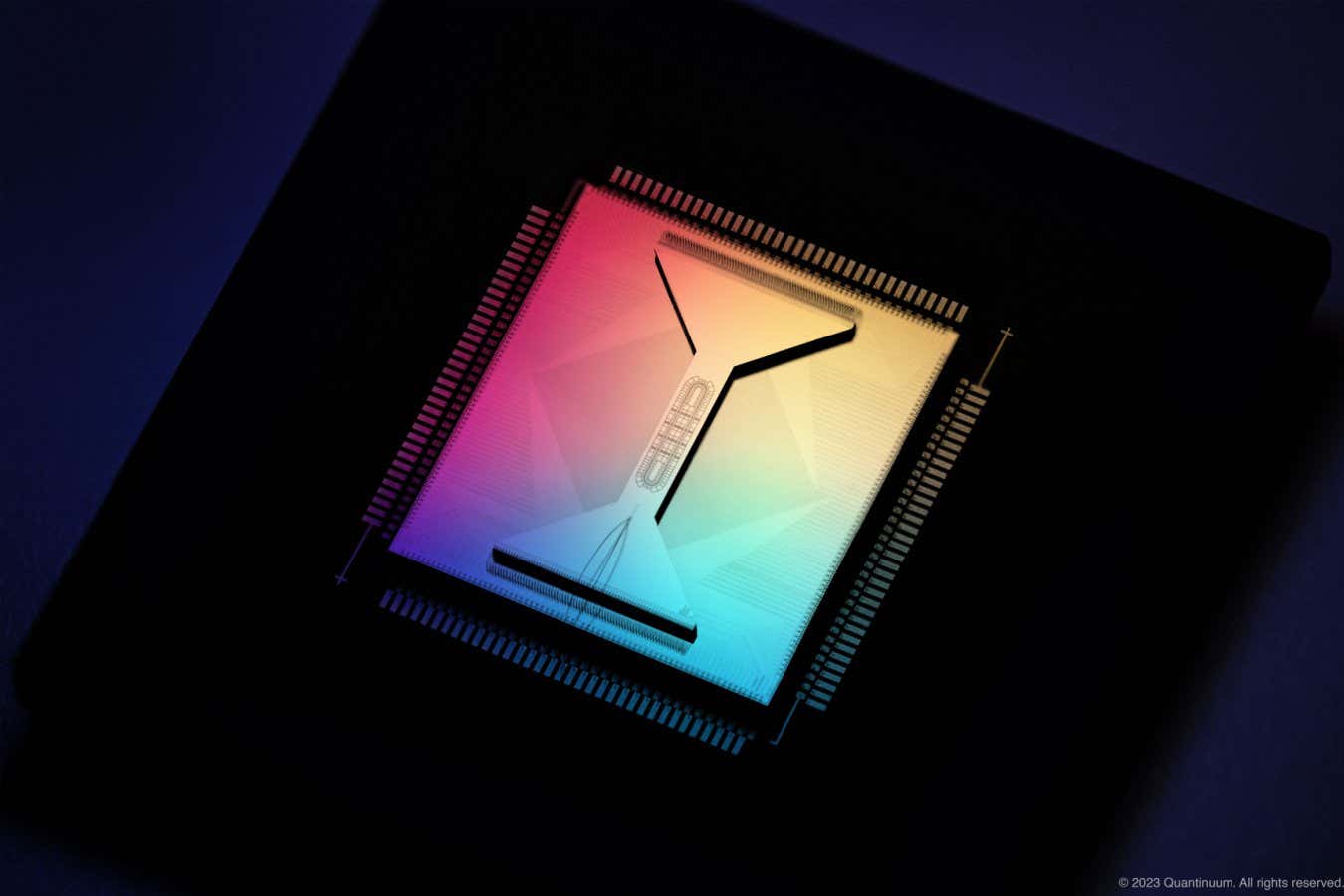A quantum computer built by Quantinuum uses “logical quantum bits” designed by Microsoft to run simple computational routines with an unprecedented level of reliability
By Karmela Padavic-Callaghan
3 April 2024
The Quantinuum H2 chip
Quantinuum
Microsoft and the quantum computing firm Quantinuum claim to have made a quantum computer that has an unprecedented level of reliability. Its ability to correct its own errors could be a step towards more practical quantum computers in the near future.
“What we did here gives me goosebumps. We have shown that error correction is repeatable, it is working and it is reliable,” says Krysta Svore at Microsoft.
Experts have long anticipated the arrival of practical quantum computers, which could complete calculations that are too complex for conventional computers. Though quantum computers are steadily becoming larger and more complex, this prediction hasn’t yet been fully realised. One big reason for this is that all contemporary quantum computers make errors, and researchers have found it technically difficult to implement algorithms to catch and correct them during computation.
Advertisement
Read more
Mystery of the quantum lentils: Are legumes exchanging secret signals?
The new experiment may represent a significant step towards overcoming this error problem – the researchers say they ran over 14,000 separate computational routines on Quantinuum’s H2 quantum processors without a single error.
Classical computers also make errors, but error correction can be coded into programs by making back-up copies of the information being processed. This approach isn’t possible in quantum computing because quantum information cannot be copied. So, instead, researchers spread it across groups of connected quantum bits, or qubits, to create what are known as logical qubits. The Microsoft and Quantinuum team used 30 qubits to make four of these logical qubits.
